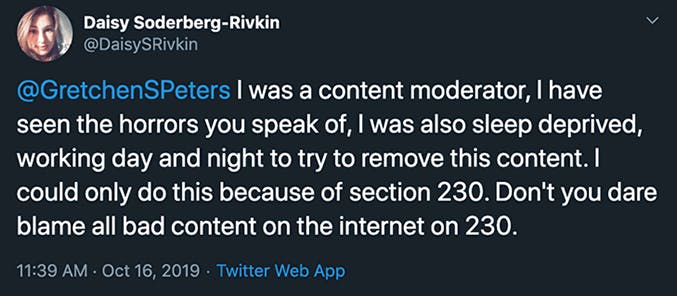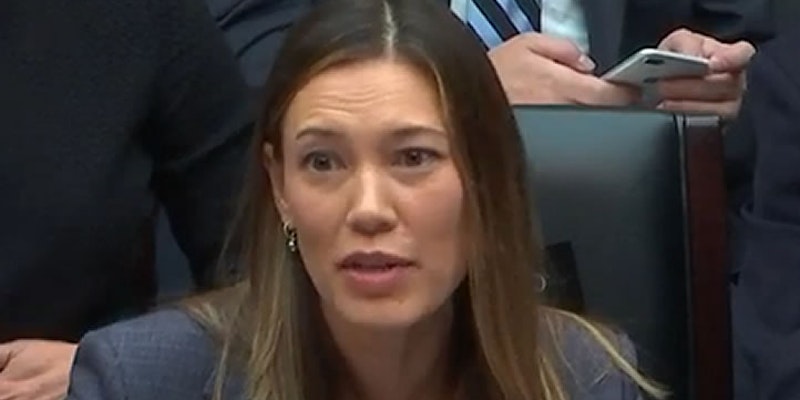When the House Energy and Commerce Committee met recently to consider the law that shields online platforms from liability for user-generated content, Google sent one of its top executives to defend the measure. But that wasn’t the only way Google got its message across. The company’s talking points were amplified by an army of outside voices, all tied to organizations that have been funded by Google.
The provision under discussion was Section 230 of the Communications Decency Act. And the pro-230 refrain came from people who work at a host of Google-funded groups, including the Consumer Technology Association, the Competitive Enterprise Institute, TechFreedom, R Street Institute, and Net Choice. There was more support from an editor at the libertarian Reason Foundation, which has its own ties to Google. Reason is part of the State Policy Network, which gets financial support from the search giant, and the Atlas Network, which Google also funds.
Section 230 is a big deal for Google. The provision is often credited with enabling the Internet as it exists today. But amid complaints that the tech platforms have done too little to crack down on posts from terrorists and other criminal content, Congress is weighing changes to the 23-year-old law. Uncertainity over legal liability for user-generated content prompted Google to call this area of law a risk factor that “could adversely affect” its business in its most recent annual report to the SEC.
At the Oct. 16 congressional hearing, Google’s global head of intellectual property policy, Katherine Oyama, told lawmakers about the importance of CDA 230 and warned that repeal or reform of the law could cripple technology start-ups—even though Google itself is often accused of doing just that. Another witness on the panel was the legal director of the Electronic Frontier Foundation, a Google-backed nonprofit, who also spoke at length about the benefits of Section 230.
Michael Petricone, the head of government affairs for the Consumer Technology Association, a Google-funded trade association, took to Twitter during the hearing, echoing the warnings about the potential harm to small businesses if CDA is changed.
Others who work at think tanks, advocacy groups and other policy organizations funded by Google continued to echo the company’s pro-230 position across Twitter around the time of the hearing. Among the members of the online chorus was Patrick Hedger, a research fellow at the Competitive Enterprise Institute, another Google-funded policy organization. Hedger highlighted another point that Google’s Oyama made in her testimony: the financial burden that would come with stronger regulations. “Imposing enormous regulatory costs on the companies rising to this challenge is an even worse solution,” Hedger said.
One of the loudest voices on the pro-230 Twitter train was Berin Szóka, president of the Google-funded technology advocacy group TechFreedom. Szóka launched a nearly four-dozen-tweet thread that started the day before the hearing by touting the organization’s pro-230 talking points and ended with attacks on all of the hearing witnesses who testified with dissenting opinions. Szóka has been backing Google’s agenda for over a decade. He is also co-author of multiple papers for the Progress and Freedom Foundation (PFF), which was receiving funding from Google at the time his work was published.

A key portion of Oyama’s testimony focused on how Section 230 helps Google in its efforts to take down harmful content. That point was challenged by some witnesses, but it was roundly supported by Google-funded technology policy advocates. Among those making the pro-230 case was Daisy Soderberg-Rivkin, a fellow at Google-funded R Street Institute.
“Don’t you dare blame all of the bad content on the internet on 230,” tweeted Soderberg-Rivkin, who previously worked as a “legal removal associate” at Google.

A tweet from a fellow at the R Street Institute, which receives funding from Google




